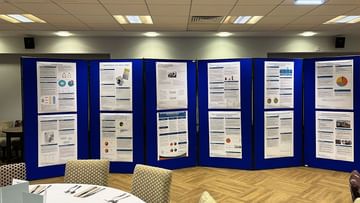Unite to protect people with Parkinson’s – the world’s fourth leading cause of death
COVID-19 and malaria were the only illnesses that killed more people than Parkinson’s in the first five months of this year.
It’s a stark reminder that while the world’s attention is focused on dealing with SARS-CoV-2, people with Parkinson’s and their families are in desperate need of support.
According to data from the John Hopkins COVID repository, the neurological condition caused 136,445 global deaths between January and May 2020. That compared to 345,059 from COVID-19, 256,795 from malaria, and 161,965 attributed to homicide, making Parkinson’s the world’s fourth leading cause of death.
Faced with this reality, the Parkinson’s healthcare community is rallying to ensure patients receive the highest quality care, despite sweeping, COVID-related changes to how people are living and services are delivered.
Increased susceptibility In an article published in the Journal of Parkinson’s Disease earlier this year, Professor Bastiaan Bloem said people with Parkinson’s may be more suspectable to the risks of pandemic mitigation measures than the general population.
“The COVID-19 pandemic has profoundly changed people’s normal routines, and this all happened over a very short period. Such drastic changes require a flexible adaptation to new circumstances, which is a cognitive operation that depends on normal dopaminergic functioning,” he said, adding that there was a large body of evidence to show that people with Parkinson’s experience “cognitive and motor inflexibility”.
It’s important to remember that our patients experienced high rates of anxiety and depression – with prevalence rates of up to 40% or 50% – even before the pandemic hit.
“The pathophysiology of PD puts patients at increased risk of chronic stress, and a further worsening of this may well be one of various hidden sorrows of the COVID-19 pandemic.
“Importantly, increased levels of stress during the COVID-19 pandemic may have several short-term as well as long-term adverse consequences,”
wrote Bastiaan, who also warned of an uptick in Parkinson’s diagnoses during the crisis.
Learning from each other
As Dr Richard Davenport said in a recent Parkinson’s Academy webinar, healthcare professionals are
“aware that the pandemic and the way the world is trying to cope with it is having indirect effects on people with Parkinson’s”.
Lockdown and quarantine measures are driving declines in mental health and activity levels, resulting in exacerbations of symptoms, he explained. And changes in care pathways, such as the move from face-to-face to virtual consultations, have the potential to compound feelings of isolation even further.
Parkinson’s Academy faculty members are doing everything they can to keep the community updated and upskilled during what is an extremely difficult time for many patients.
Our series of COVID-19 and Parkinson’s webinars has covered subjects such as how to get the most out of remote consultations, how to manage SARS-CoV-2 in our patient population, and how to support people to stay active.
The pandemic isn’t going away any time soon. But we believe that by bringing the leading minds in our field together, to discuss the issues and provide practical tips on delivering quality care in trying times, we can protect people with Parkinson’s from the “hidden impact of COVID-19”.
You can see the full list of upcoming webinars here or watch previous events here.
Related articles
'The things you can't get from the books'
Parkinson's Academy, our original and longest running Academy, houses 22 years of inspirational projects, resources, and evidence for improving outcomes for people with Parkinson's. Led by co-founder and educational director Dr Peter Fletcher, the Academy has a truly collegiate feel and prides itself on delivering 'the things you can't get from books' - a practical learning model which inspires all Neurology Academy courses.


